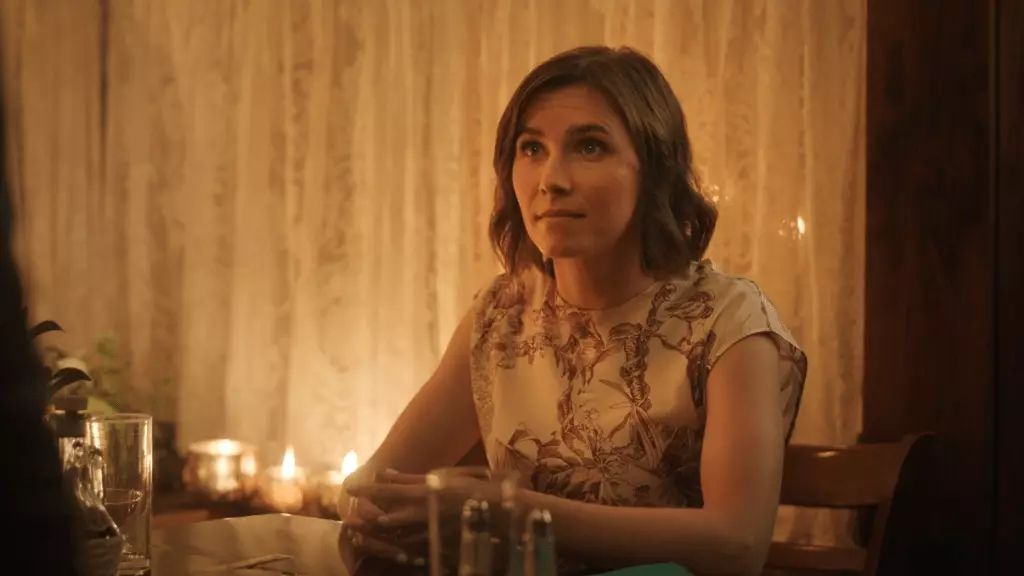As audiences wrap their minds around the first season of Peacock’s *Laid*, it’s clear that the finale encapsulates not only a narrative climax but also a broader commentary on relationships, personal growth, and the unexpected twists life can present. The series, which blends romantic comedy with hints of dark humor, managed to keep viewers engaged through its outlandish premise: a woman discovering that her former lovers are dying in chronological order based on their encounters. With a talented ensemble that includes figures like Finneas O’Connell and Simu Liu, the show cleverly weaves together threads of mystery and personal trial, exemplified by its surprising guest star, Amanda Knox, who shared the screen with Zosia Mamet.
Mamet’s reflection on their scene underscores the production’s mindfulness regarding privacy, particularly in reference to Knox’s tumultuous past. By maintaining a controlled environment during filming, Mamet emphasized a commitment to ethical storytelling—something that is often overlooked in modern television. The camaraderie between Knox and Mamet during their scene not only provided a moment of levity but served to humanize Knox, who is often seen solely through the lens of her legal battles. The respectful approach demonstrates a thoughtful endeavor in narrative construction, revealing that even in comedy, sensitivity is paramount.
Friendship Vs. Romance
At the core of *Laid* lies a profound examination of friendship, particularly as it evolves over time. The relationship dynamics between main characters Ruby, portrayed by Stephanie Hsu, and AJ, played by Mamet, delve into the complexities of adult bonds that often overshadow conventional romantic plots. Mamet’s observations on the depth and intricacies of female friendships resonate powerfully, suggesting that these relationships can endure hardships that are often left unaddressed by typical narratives focusing exclusively on romance. The tension that arises when Ruby’s actions threaten the stability of her friendship with AJ illustrates the emotional stakes in a manner that might be less considered in standard romantic comedies.
Ruby’s journey throughout the season is a poignant commentary on personal discovery amid chaos. Finding herself amidst the dying men from her past, she embarks on a quest filled with existential questions, igniting debates about accountability, desire, and moral ambiguity. This premise sets the stage for both comedic and dramatic moments, culminating in a finale that forces Ruby—and, by extension, the audience—to confront the consequences of her choices. The show transcends the simple tropes of romantic comedies, offering a more layered exploration of how relationships from her past continue to impact her present.
Knox’s cameo serves not only as an interesting plot device but also as a reflection of how popular culture can intersect with real-life narratives, providing a platform for dialogue about resilience and recovery. Her cameo in a comedic setting allows for a juxtaposition of her past struggles with modern-day themes of empowerment and self-discovery. This blending of reality and fiction can facilitate important discussions about the broader societal views surrounding women’s issues, particularly how they evolve as they navigate the complexities of life decisions.
*Laid* presents a refreshing perspective on relationships, particularly the significance of female friendship as a profound source of support and challenge in adulthood. The season finale not only showcases a clever narrative twist but also underlines the importance of thoughtful engagement with complex characters, all while maintaining a commitment to sensitivity—a rare quality in today’s entertainment landscape. As viewers anticipate the future of the series, one can hope that these themes will continue to be explored in inventive and thought-provoking ways. The power of *Laid* lies not just in its humor or shock value, but in its ability to tackle life’s greatest trials with grace and intelligence.
